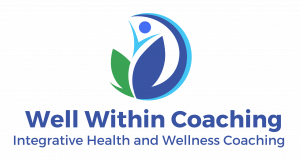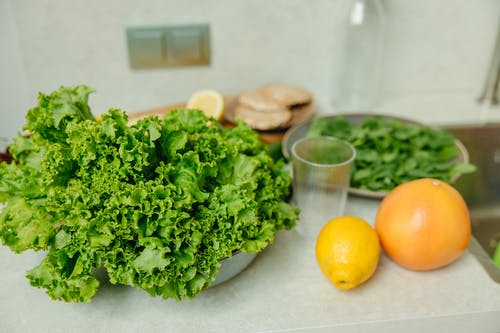The Problem with Kale and Lemon Water
I often describe my services as “beyond kale and lemon water.”
Unlike many other health and wellness coaches, my clients’ goals tend to center around the intersection of their mental, emotional and physical needs, how to prioritize their own needs, and setting and holding boundaries to enable those needs to be met.
Beyond that, it’s often a major task to create enough self-love to feel worthy of honoring their commitments to themselves.
Kale and lemon water are great (if you enjoy them,) but they tend to take a way-back seat to these deeper and more impactful areas of whole health and wellbeing.
Kale is simultaneously one of the most revered and most maligned “health foods”. It was having a moment at the beginning of my own wellness journey.
I diligently drank my lemon water every morning and added kale to everything from smoothies and salads to soups and sautéed vegetables.
But I didn’t feel a whole lot better.
As I went farther and farther down the road of “food as medicine” (which it is,) it became clear that something was missing.
I had already brought in meditation, movement and strategies such as journaling and gratitude, all of which helped me move along the famed Illness-Wellness Continuum.
But I still wasn’t feeling significantly better.
Then there was acupuncture, massage, reiki, chiropractic, essential oils, ayurveda, time in nature, quality sleep and all manner of detoxification protocols. While a few of these had a significant role, I was still not feeling well. (It’s no wonder! Where was the time to just be?)
It wasn’t until the winter of 2019 that I finally figured out what was missing. I needed to radically change my inner life, not just my outer life. I needed to live in alignment with what I wanted most. I needed to show myself love, and care for myself from the inside, not just the outside.
My business is called Well Within Coaching because I believe we all have what we need within ourself to be well; but I wasn’t drawing deep enough from my own well, (the other aspect of the analogy,) all the way down to the love.
The true essence of who we are is love. There was a time I scoffed at that idea and held a limiting belief that I had to do something to feel my best.
What I needed to feel better and to feel well, was to come from a place of love and reverence for myself.
As practitioners, we often tell clients they need to “fill their own cup”, but are not always living in alignment with this value.
I understand the tendency. In the past, I would say to clients, “we don’t stress ourselves well; we don’t punish ourselves to healing,” but then withhold authenticity and love and care from myself as though I were an exception. Clearly not a recipe for wellness. In fact, through my own experience and that of many of my clients, I now think of self-love as a prerequisite of sorts, not just for attaining, but sustaining holistic wellbeing.
These days, self-care and self-love means honoring the needs of my mind, body, emotions and spirit, and noticing, without judgement, what comes up when I do. It’s about self-compassion and self-acceptance.
It means being gentle with my routines. It means welcoming in unpleasant or uncomfortable emotions when they arise. It means strengthening my faith and trust. It means recognizing my value beyond a professional title. It means saying no to 50-hour work weeks and yes to unscheduled Sundays.
It means smiling at myself in the mirror rather than picking myself apart.
It means stepping out of my comfort zone and allowing for healthy vulnerability.
As a clinician, practitioner, or leader, you may be accustomed to prioritizing the needs of your patients, clients, and teams, never mind your family. But if you’re also neglecting your own, you may be experiencing the effects and their consequences over time.
Maybe you’ve recognized that what you’re doing is no longer working. Maybe, like me, you tried all the “right” things, but still struggle with an aspect of your health and wellbeing. Perhaps you’re worried about burnout or compassion fatigue.
As you seek solutions, you can keep the kale shake and lemon water, but start with some self-love.
Learning to truly love and care for yourself is a mindset and a practice. It could be intuitive, but for most people isn’t. If you’d like to take a step closer to wellness this year, reach out to let me know what’s been in the way. We’ll co-create a plan to help you overcome any limiting beliefs, and return to love.
Disclaimer: This post is for informational purposes only. It does not constitute medical advice, or replace treatment or intervention by a qualified medical or mental health professional. If you have an illness or chronic condition, always consult with a qualified professional prior to making any changes to your dietary pattern or lifestyle regimen.





